Ruijie Yao
Predicting Diabetic Macular Edema Treatment Responses Using OCT: Dataset and Methods of APTOS Competition
May 09, 2025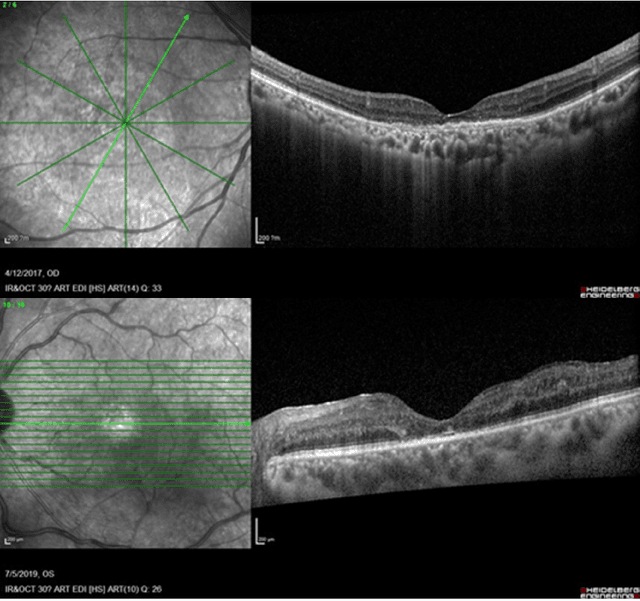
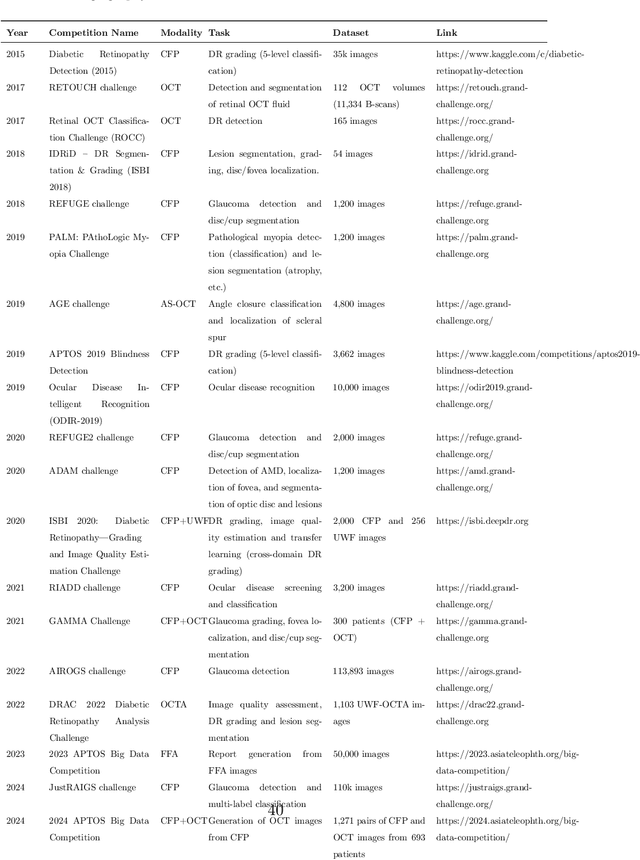
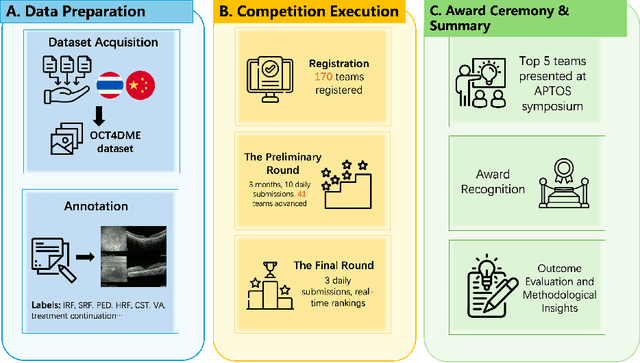

Abstract:Diabetic macular edema (DME) significantly contributes to visual impairment in diabetic patients. Treatment responses to intravitreal therapies vary, highlighting the need for patient stratification to predict therapeutic benefits and enable personalized strategies. To our knowledge, this study is the first to explore pre-treatment stratification for predicting DME treatment responses. To advance this research, we organized the 2nd Asia-Pacific Tele-Ophthalmology Society (APTOS) Big Data Competition in 2021. The competition focused on improving predictive accuracy for anti-VEGF therapy responses using ophthalmic OCT images. We provided a dataset containing tens of thousands of OCT images from 2,000 patients with labels across four sub-tasks. This paper details the competition's structure, dataset, leading methods, and evaluation metrics. The competition attracted strong scientific community participation, with 170 teams initially registering and 41 reaching the final round. The top-performing team achieved an AUC of 80.06%, highlighting the potential of AI in personalized DME treatment and clinical decision-making.
UniFS: Universal Few-shot Instance Perception with Point Representations
Apr 30, 2024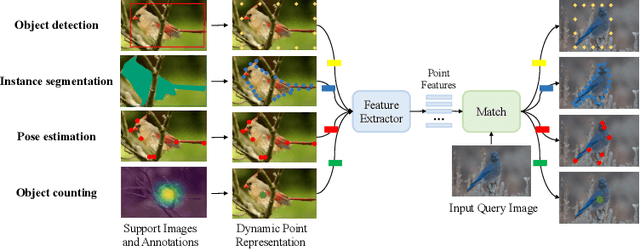
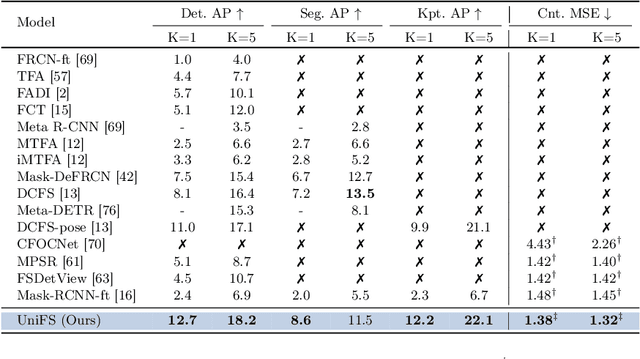
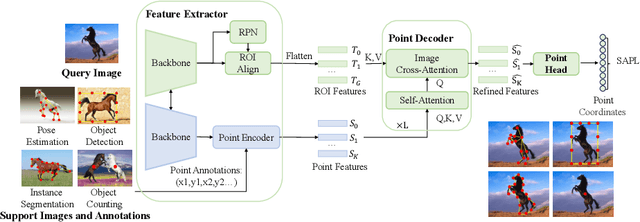

Abstract:Instance perception tasks (object detection, instance segmentation, pose estimation, counting) play a key role in industrial applications of visual models. As supervised learning methods suffer from high labeling cost, few-shot learning methods which effectively learn from a limited number of labeled examples are desired. Existing few-shot learning methods primarily focus on a restricted set of tasks, presumably due to the challenges involved in designing a generic model capable of representing diverse tasks in a unified manner. In this paper, we propose UniFS, a universal few-shot instance perception model that unifies a wide range of instance perception tasks by reformulating them into a dynamic point representation learning framework. Additionally, we propose Structure-Aware Point Learning (SAPL) to exploit the higher-order structural relationship among points to further enhance representation learning. Our approach makes minimal assumptions about the tasks, yet it achieves competitive results compared to highly specialized and well optimized specialist models. Codes will be released soon.
GKGNet: Group K-Nearest Neighbor based Graph Convolutional Network for Multi-Label Image Recognition
Aug 28, 2023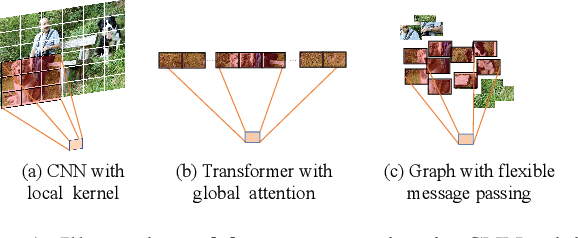



Abstract:Multi-Label Image Recognition (MLIR) is a challenging task that aims to predict multiple object labels in a single image while modeling the complex relationships between labels and image regions. Although convolutional neural networks and vision transformers have succeeded in processing images as regular grids of pixels or patches, these representations are sub-optimal for capturing irregular and discontinuous regions of interest. In this work, we present the first fully graph convolutional model, Group K-nearest neighbor based Graph convolutional Network (GKGNet), which models the connections between semantic label embeddings and image patches in a flexible and unified graph structure. To address the scale variance of different objects and to capture information from multiple perspectives, we propose the Group KGCN module for dynamic graph construction and message passing. Our experiments demonstrate that GKGNet achieves state-of-the-art performance with significantly lower computational costs on the challenging multi-label datasets, \ie MS-COCO and VOC2007 datasets. We will release the code and models to facilitate future research in this area.
 Add to Chrome
Add to Chrome Add to Firefox
Add to Firefox Add to Edge
Add to Edge